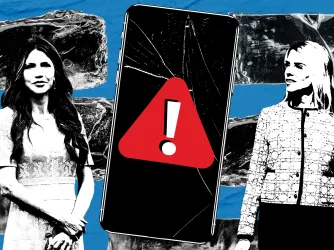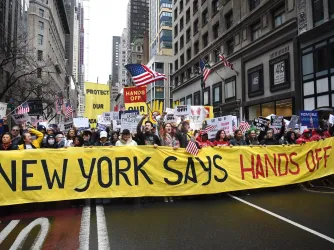Table of Contents
In flawed opinion, district court dismisses The Koala’s lawsuit

A federal judge dismissed a student humor publication’s lawsuit against the University of California, San Diego on Wednesday in an opinion that is remarkable primarily for how consistently it misinterprets law and precedent.
If you have followed FIRE’s work, you are already familiar with The Koala (tagline: “The Worst in Collegiate Journalism Since 1982!”), a student publication that specializes in humor that many people find tasteless and offensive. In modern vernacular, one might describe The Koala as “trolling” the campus community for more than three decades, although the publication has been around longer than that term has been used.
In 2002 and 2010, the university’s student government, the UC San Diego Associated Students, tried to cut The Koala’s funding because they didn’t like its content. Both times, FIRE reminded them that such an attempt was unconstitutional.
In November 2015, The Koala published an article satirizing safe spaces that drew the ire of members of the student body. Two days later, the student government voted not to fund any more print publications, effectively ending student funding for The Koala and 15 other publications. FIRE (and others, including the ACLU of San Diego & Imperial Counties) criticized this third censorship attempt that December.
In June of last year, The Koala — represented by the ACLU of San Diego & Imperial Counties — sued UCSD in the United States District Court for the Southern District of California, seeking the return of its funding.
In dismissing The Koala’s suit Wednesday, Judge Jeffrey T. Miller issued an opinion that, unless overturned on appeal, has the potential to gut civil rights law for speakers well beyond campus publications.
If this opinion stands, forum status becomes essentially meaningless. In First Amendment doctrine, a forum is something (for example, a physical space, or a pool of money) set aside by the government for certain speakers or certain types of speech. A traditional public forum, like the steps of city hall, is available to everyone and for every type of speech; an example of a limited public forum would be a “town hall” meeting with a member of Congress, where the public is invited to speak on relevant issues.
As the Supreme Court explained in its 2000 decision in Board of Regents of the University of Wisconsin System v. Southworth, student activity fees create a limited public forum, one where speakers of a certain class (students) are free to spend the money to support activities of a certain type (in this case, publications).
The first odd holding in the ruling is that seeking a return of student activity fees is barred by the 11th Amendment, which prevents (with limited exceptions) citizens from suing a state itself in federal court. The judge ruled that the 11th Amendment applies because “The Koala seeks to directly tap the state treasury by requiring funds derived from the student activity fees to be allocated for its print media publication costs.”
That the court sees no distinction between student activity fees and treasury fees is astonishing, since the unique nature of student activity fees was a key element of the Supreme Court’s Southworth decision.
In the words of the majority in Southworth:
The University having disclaimed that the speech is its own, we do not reach the question whether traditional political controls to ensure responsible government action would be sufficient to overcome First Amendment objections and to allow the challenged program under the principle that the government can speak for itself. If the challenged speech here were financed by tuition dollars and the University and its officials were responsible for its content, the case might be evaluated on the premise that the government itself is the speaker. That is not the case before us.
It cannot be the case that there is a distinction between tuition dollars and a student activity fee for First Amendment purposes, and yet no distinction between the state treasury — a pool so large as to include tuition fees within it — and a student activity fee for 11th Amendment purposes.
The second error the district court makes in its opinion is to rule that, because the elimination of all print funding is facially viewpoint-neutral and subject-neutral (that is, the actual rule enacted doesn’t on its face target a particular speaker or a particular subject matter), the court will not consider the improper retaliatory motivation behind that decision. In the words of the court, “motive plays no role in assessing a content-neutral regulation of speech” in a case like this one.
But this reasoning also fails in a number of ways. The regulation is not content-neutral at all: In the words of Marshall McLuhan, “The medium is the message.” UCSD’s decision to eliminate print publications was made because the content they sought to eliminate was in print. Furthermore, in Reno v. ACLU (1997) (which struck down most of the Communications Decency Act of 1996), the Supreme Court said the government cannot single out a medium of speech for greater scrutiny on the basis of its intrinsic nature. Clearly, the student government has singled out a medium for disfavored treatment, and in light of Reno v. ACLU, this restriction is inherently suspect.
The predominant failure in Judge Miller’s rationale, however, is that he disclaims the need to view a forum closure as suspect when that closure is undertaken as a means of unabashed censorship. This is distressing, because courts routinely consider the government’s motive (and impact) in undertaking an action that, on its face, might seem innocent. For example, laws of the Jim Crow-era South were often facially content-neutral, but were targeted to disadvantage and harm a specific class. Under the rationale in this opinion, a court should not question why, for example, a Southern state would impose a literacy test on voters, even though the explicit discussion leading to that rule made clear it was because, until emancipation, many states prohibited enslaved people from learning how to read.
One way to tell that a judicial opinion cannot be reconciled with American principles is that the opinion would make de facto segregation difficult to challenge.
If a dislike of the content of speech can justify carving a forum up to functionally prohibit that speech, then what good is a limited public forum? If the only protection it offers is that it obligates the government to spend ten seconds of creativity to come up with an excuse for taking an improperly motivated censorship action, forum status is worse than worthless, because some actions to cut off funding taken outside of a defined forum would be illegal under civil rights law. In other words, under this reasoning, your speech would be less protected in a forum, because the nature of the forum means all funding cuts come with a pretense.
But that cannot be the case. The Supreme Court did not define the forum in order to make it easier to censor speech. I strongly hope The Koala will seek appellate review of this opinion and that the U.S. Court of Appeals for the Ninth Circuit will reverse this decision. If the Koala appeals, we’ll report it here.
Recent Articles
Get the latest free speech news and analysis from FIRE.

FIRE sues Bondi, Noem for censoring Facebook group and app reporting ICE activity

Deep dive into New York’s proposals to ban demonstrations near houses of worship

Iran replaced my mother’s voice with silence
